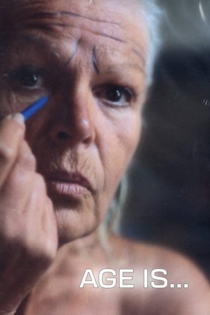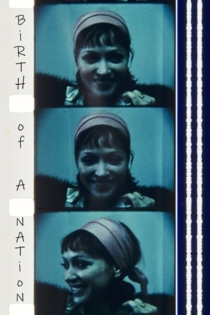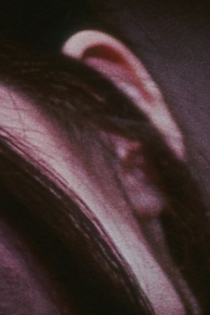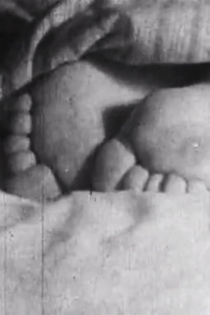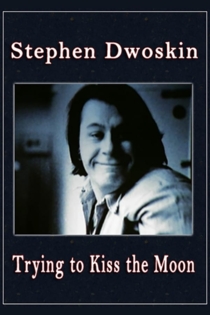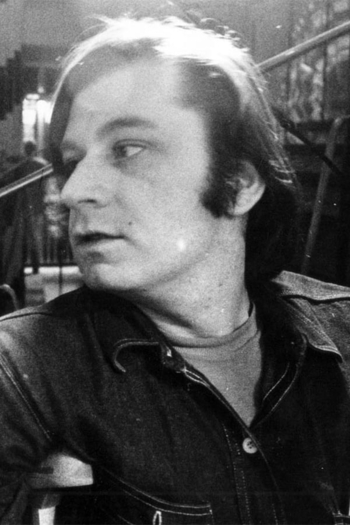
Stephen Dwoskin
1939 - 2012Dwoskin died on 28th June 2012 in London. His sensitive and emancipating works have been the subject of various international presentations.
Mes entretiens filmés
Boris Lehman
François Albéra, Jean-Marie Buchet
This distinctly personal journey into the artistic possibilities of independent film is not to be missed. Jonas Mekas, Jean-Pierre Gorin, Robert Kramer and many other visionaries and mavericks of the silver screen – as well as a book seller, a critic and a psychoanalyst – discuss what cinema has meant to them, what it is and what it could be and, implicitly, how it has changed over the 18 years in which this film was shot. Director Boris Lehman leads the charge, drawing in moments of absurdist humour and inventive camera work; he keeps things raw and spontaneous. His encounters with the now much-missed Jean Rouch and Stephen Dwoskin are particularly touching and stand testament to their personal playfulness and candour. An engaging, absorbing, epic odyssey of a movie.
My Conversations on Film
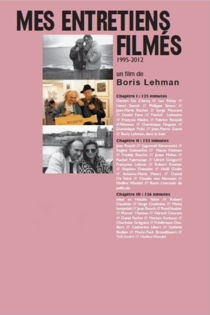
Further and Particular
Stephen Dwoskin
Richard Butler, Bruce Cooper
An old man remembers the troubled relationship he had with his mother, the erotic games, and the phantasms in which she managed to attract him. The main line gives but a small idea of the film, of its erotic style, its choreographic dimension, its strange fragmentation. The film drifts along an ever-renewed invention, intertwining lavish dances, mask games, musical comedy, parodies, permanent repression of the body offering itself as an object of desire to the viewer who is literally seduced.’
Further and Particular
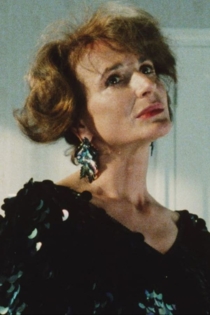
Face of Our Fear
Stephen Dwoskin
‘… Face Of Our Fear is a richly conceived essay about the evolving image of disability. Dwoskin, a highly accomplished experimental filmmaker, begins with the declaration that the historically distorted images of people with disabilities constitute a “negation of selfhood”. He then traces this concerted effort through two thousand years of Western culture, beginning with the Greek notion of the idealized body and its opposite, the fabulous races. Using contemporary films clips, literary quotations, performance, and pictorial records, Face Of Our Fear looks at the Court’s infatuation with “monsters” during the Middle Ages, the “charity cripples” of the Enlightenment, the freakshows of the nineteenth century, each a resort to oppressive stigmatization.’- Steve Seid
Face of Our Fear
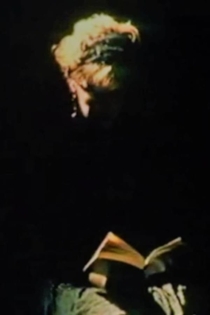
Pain Is...
Stephen Dwoskin
Stephen Dwoskin, Astley Harvey
The film is just this kind wandering through the personal ways and whys of different kinds of pain in different kinds of people. The film searches through the many levels of pain and finds it in its unique position between disaster and pleasure. Pain is..thus plunges us instantly into the midst of controversy and the unknown.
Pain Is...

The Sun and the Moon
Stephen Dwoskin
'The Sun and the Moon, a film fairy tale, is about two women’s terrifying encounter with ‘Otherness’ in the form of a man, abject and monstrous, and for them to either to witness, accept or partake in his annihilation. All are caught in their own isolation and are fearful of the menace that has to be met. The film, as a personal interpretation of Beauty and the Beast, enciphers concerns, beliefs and desires in seductive images that are themselves a form of camouflage, making it possible to utter harsh truths.'
The Sun and the Moon
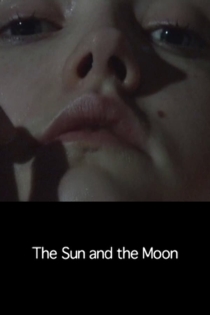
Death and Devil
Stephen Dwoskin
Charles Regnier, Carola Regnier
Evolves around the rooms of a house as one of the main characters, Lisiska, is waiting and is studied in depth as she prepares herself for a meeting. The film attempts to display sexual barriers and misconceptions, and about the role-playing and the confusion around the whole question of sexual and sensual involvement. The essence is the confrontation with self-deception, lies and the real fear of contact with both sexes.
Death and Devil
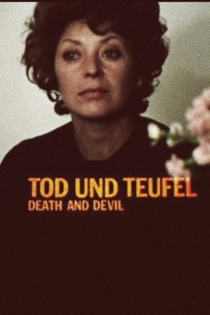
Silent Cry
Stephen Dwoskin
Ernest Brightmore, Béatrice Cordua
'The Silent Cry is a fictionalised narrative film, based on documentary facts and extracts of one English girl's memories and thoughts, all surrounded, and directed towards her particular dilemma. This dilemma can be summarized as her basic inability to have relationships, especially sustained relationships, and particularly with men. This is the total of her statement and the film. The construction and flow of the film follows the way she thinks - it is her point of view that is followed in the film. So all things are the way she remembers and dwells on them, and which are important to her.' - S.D.
The Silent Cry
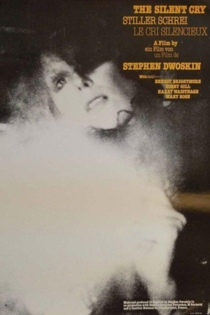
Behindert
Stephen Dwoskin
Stephen Dwoskin, Carola Regnier
Described by Stephen Dwoskin as "a documentary without being one," the basis of BEHINDERT is autobiographical: the story of a physically disabled man and a physically normal woman- played by Dwoskin (who has a post-polio disability) and Carola Regnier- who confront the difficulties of a relationship. The two were no longer a couple at the time Dwoskin made the film, yet it burns with the passion and intensity of true love.
Behindert
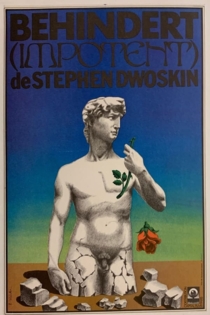
Dyn Amo
Stephen Dwoskin
Jenny Runacre, Pat Ford
'Dyn Amo' is a 'drama' exploring the distinction between a person's self and his projection of that self to others; and it's a 'horror movie' tragically suggesting how a projection can become more substantial than the self behind it. Its subjects are role-playing (especially sexual role-playing), and the masochism of playing a role that conforms to others' exploitative interests.
Dyn Amo
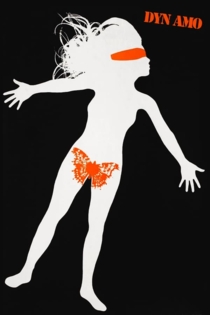
Age Is...
Stephen Dwoskin
Antoine Barraud, Gilles Bénardeau
Stephen Dwoskin’s final film is a meditation on the subjective experience and cultural concepts of ageing. The film is an ode to the texture, the beauty, the singularity of aging faces and silhouettes, a hypnotic poem in the Dwoskin meaning of the term which is long observations of very tiny details. A gesture, a pause, a look, a moment. Throughout his films intimacy has always played a leading role and this is also true for Age is..., all the faces being close friends, or close friends relatives and sometimes even Stephen himself.
Age Is...
